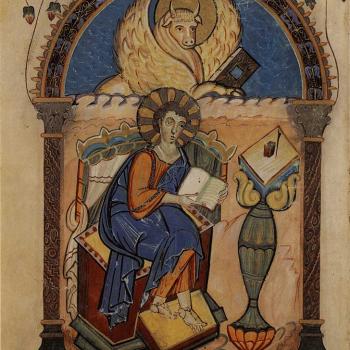 By Reza Aslan
By Reza Aslan
With apologies to Friedrich Nietzsche, God is most definitely not dead. Indeed, God is a stronger, more global force in the world today than he has been in generations. According to the World Christian Encyclopedia, which provides a comparative analysis of religious affiliations across the globe, religious identities are almost everywhere on the rise.
At the start of the 20th century, one-half of the world's population identified itself with one of the five major religious traditions: Judaism, Christianity, Islam, Buddhism, Hinduism. After one hundred years of rampant secularism and scientific progress, that number now stands at nearly two-thirds. At the same time, the number of those who profess belief in God yet who do not affiliate with any specific religious tradition is also on the rise.
In other words, all the confident predictions about human society eventually abandoning religion and spiritualism as it became wealthier and more secularized have failed to materialize. It turns out the opposite is true. The more society has advanced -- the more educated and technologically sophisticated we have become -- the more religion continues to play an active role in our lives and in our societies. And there is no reason to think that this trend will change in the future. In short, we are becoming more, not less religious.
Perhaps unexpectedly, the biggest culprit for the surge in religious identities across the world is globalization, which has radically altered the way people define both themselves and their societies. Globalization is not just about greater interdependence among nation-states; it is about one's sense of self in a world that is increasingly being viewed as a single space. Globalization has transformed how individuals identify themselves as part of a social collective, how they interact with like-minded individuals, how they conceive of public spaces. At the very least, globalization has erased the old demarcations of nation-states and, as a result, done away with the primacy of "nationality" on our collective identities. And since our collective identities are composed of multiple markers -- nationality, class, gender, religion, ethnicity, and so on -- it is only natural that as one of those markers starts to dissolve (nationality), another (religion) will fill the vacuum.
Globalization has also changed the very definition of community. Since the dawn of man "community" has been defined almost exclusively in terms of proximity. In other words, "my community" is comprised solely of those who speak "my language," who live in "my community," who share "my faith," who are, in effect, territorially bounded together with me. But the internet and mass communication technologies have completely upended how communities are created and defined.
Today, a young, Muslim heavy metal fan in Indonesia may have more in common with a young, Christian heavy metal fan in London than he does with most of the people who attend his mosque or go to his school. Thanks to new social media technologies, a Jew in Jerusalem may spend more quality time -- by which I mean intimate, personal, self-identifying time -- on Facebook or MySpace with a Jew in Brooklyn than he does with the Jewish community in Israel. In the United States, the Episcopal Church has split over the issue of whether to bless gay unions, with a large segment of the American congregation voluntarily placing themselves under the authority of bishops in Africa and Latin America who share neither their language nor their culture -- not to mention their customs and mores. No longer do any of these individuals or groups feel bound by geography when determining their religious identities.
More dramatically, the internet has democratized religious authority and flattened the lines of transmission whereby power is disseminated among religious communities. Take Islam, for example. Twenty years ago if a Muslim living in Malaysia needed spiritual advice about some legal matter, he would simply go to his local mosque and ask his imam who, if he were qualified, would issue a fatwa -- an authoritative juristic opinion -- that the young Muslim could either accept or reject as he saw fit. Today, if that Muslim were unhappy with his imam's interpretation, he could simply log on to fatwa-online.com, or efatwa.com, or askanimam.com, or any of the dozens of electronic databases from which he could consult tens of thousands of religious scholars on any issue of concern until he finally finds an authority -- and a community -- that shares his values and ideals.




